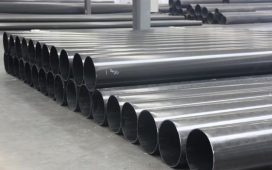When running an ecommerce business, one of the primary considerations will nearly always be how best to make use of warehousing – if at all. It should be noted, however, that, at the smaller end of the scale, warehousing might not be necessary. The smallest ecommerce ventures – i.e., those which involve fulfilling orders personally, usually at home, and arranging shipment for a small number of orders – might not require any significant warehousing.
Ecommerce fulfilment experts Shipping and Handling of Texas, say that it is usually a sign of burgeoning success when a small ecommerce venture finally has to work warehousing into their operations. In other words, all ecommerce ventures should become adept at warehousing as all ecommerce ventures should be trying to get to the point where they are using it.
What is Ecommerce Warehousing?
You no doubt have an idea of what warehousing is, but what are the specific considerations involved in warehousing for ecommerce ventures? In ecommerce, warehousing can fulfil a number of functions. It can be used as a way to store physical goods before they are sold (if you need to do this, then it’s clear your business is growing its inventory and moving in the right direction).
The warehouse can also be an important link in the ecommerce fulfilment chain. For example, goods that are shipped over distance could be transferred between carriers at a warehouse. Sometimes this is done with cross docking, where the goods swap transport in the dock of the warehouse and are quickly sent on their way. The warehouse, however, could also be a regional distribution center and an important stopping point on the way to recipients.
Ecommerce Warehouse Management
So, if you are making use warehousing for ecommerce fulfilment, it is important to understand how warehouses are managed when this is the intended use. Warehouse management refers to the daily management of a warehouse, and inherent within this are a number of common tasks. These include:
- the training and management of warehouse staff
- managing inventory
- safety considerations
- security considerations, especially in terms of inventory security
- forecasting changes in demand and shipping volume
- managing certification and licensing
All these need to be considered for the efficient managing of a warehouse for ecommerce purposes. There is a lot involved here (a little too much to be exhaustively covered here) and it might be better to go over some the best practices and general principles which underpin efficient ecommerce warehouse management.
Benefits of Warehousing for Ecommerce Products
To understand these principles, it is better to consider just what warehousing can offer ecommerce companies. Here follows some of the top benefits:
Speed of Shipping
Even though products at a warehouse are technically static and being stored, warehousing does indeed speed up order fulfilment. Depending on the size of your customer base and where they are located.
Better Organization
Well, a warehouse is obviously all about organization. Specifically, though, warehouses are a benefit, even for small ecommerce ventures, because they are always organized with a sophisticated inventory tracking system. Your living room or garage certainly is not.
Free Up Time
In particular, warehousing offers this because a warehouse comes with its own staff and internal system. This means somebody else is handling the tricky business of inventory storage, tracking, and dispatch. That leaves you more time and energy to focus on growing your business.
The Bottom Line
Ultimately, the benefits offered by warehousing are diverse and apply pretty much to companies of all sizes. When you first get started, you will probably be operating out of the home. Warehousing, however, is worth getting in on sooner rather than later.







